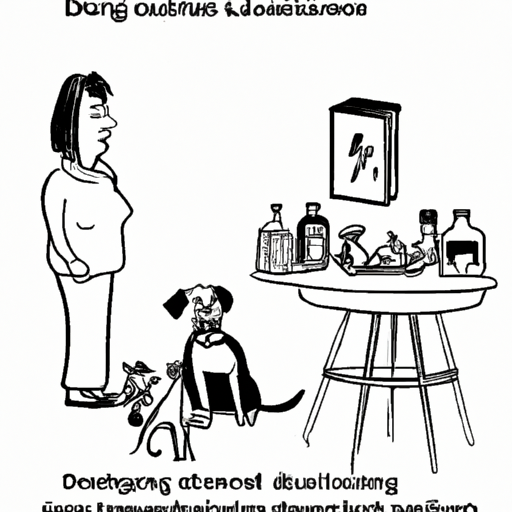As a caregiver, your pet’s health is of utmost importance to you. One of the common health issues that dogs face is vomiting. It can be distressing to see your furry friend in discomfort, and you might be left wondering what could be the cause. In this comprehensive guide, we’ll explore five primary reasons why your dog may be vomiting, and what you can do about it.
1. Dietary Indiscretion
Dogs are naturally inquisitive, and their curiosity often leads them to eat things they shouldn’t. This can sometimes result in an upset stomach, leading to vomiting.
- Garbage raiding: Dogs may consume spoiled food or non-food items when they get into the garbage. This can lead to gastrointestinal irritation, poisoning, or blockages, all of which can cause vomiting.
- Change in diet: A sudden change in your dog’s diet can upset their stomach and induce vomiting. It’s best to transition slowly when switching dog foods.
2. Gastrointestinal Problems
Certain diseases and conditions that affect the dog’s gastrointestinal tract can cause vomiting. These include:
- Gastritis: Inflammation of the stomach lining, often due to eating irritating substances.
- Pancreatitis: Inflammation of the pancreas, commonly caused by eating fatty foods.
- Parasites: Intestinal parasites like roundworms can cause vomiting in dogs.
3. Systemic Illnesses
Vomiting can also be a symptom of systemic illnesses, which are diseases that affect multiple organs or the whole body.
- Kidney disease: Impaired kidney function can lead to the build-up of toxins in the bloodstream, causing nausea and vomiting.
- Liver disease: Similar to kidney disease, liver disease can cause vomiting due to a build-up of toxins.
- Diabetes: If not well-managed, diabetes can lead to a dangerous condition called ketoacidosis, causing vomiting among other symptoms.
4. Toxins and Poisons
Dogs can encounter a variety of toxins in their environment, and ingestion of these substances can lead to vomiting.
- Foods toxic to dogs: Certain human foods, like chocolate, grapes, and onions, are toxic to dogs and can cause vomiting.
- Household chemicals: Cleaning products, antifreeze, and other chemicals can be harmful or deadly if ingested by your dog.
- Medication overdose: Both human and dog medications can cause vomiting if your dog accidentally ingests too much.
5. Stress and Anxiety
Just like in humans, stress and anxiety can result in physical symptoms in dogs, including vomiting.
- Separation anxiety: Dogs that are left alone for long periods may become anxious and exhibit symptoms like vomiting.
- Fear or phobia: Loud noises, unfamiliar people, or new environments can cause fear and anxiety in dogs, leading to vomiting.
Frequently Asked Questions
Q: How often is it normal for a dog to vomit?
A: Occasional vomiting can be normal for dogs, especially if they’re known to eat things they shouldn’t. However, if your dog is vomiting frequently or seems sick in other ways, it’s time to see the vet.
Q: Should I feed my dog after they vomit?
A: It’s usually best to give your dog’s stomach a rest after vomiting. Wait a couple of hours, then offer a small amount of bland food like boiled chicken and rice.
Q: Can I give my dog medicine to stop the vomiting?
A: While there are dog-safe anti-nausea medications, you should always consult with a vet before administering any medication to your dog.
Q: When should I take my dog to the vet for vomiting?
A: Seek veterinary care if your dog is vomiting frequently, acting lethargic, has a decreased appetite, or if their vomit contains blood or looks like coffee grounds.
In conclusion, while it can be worrying to see your dog vomit, understanding the potential causes can help you better care for your pet. Always consult with a vet if you’re concerned about your dog’s health.
Remember, you’re doing a great job as a caregiver. Keep showing up for your pet, even when things get ruff.



